_A talk given at the [Shadow Libraries](http://www.sgt.gr/eng/SPG2096/)
symposium held at the National Museum of Contemporary Art (EMST) in
[Athens](/Athens "Athens"), 17 March 2018. Moderated by [Kenneth
Goldsmith](/Kenneth_Goldsmith "Kenneth Goldsmith") (UbuWeb) and bringing
together [Dusan Barok](/Dusan_Barok "Dusan Barok") (Monoskop), [Marcell
Mars](/Marcell_Mars "Marcell Mars") (Public Library), [Peter
Sunde](/Peter_Sunde "Peter Sunde") (The Pirate Bay), [Vicki
Bennett](/Vicki_Bennett "Vicki Bennett") (People Like Us), [Cornelia
Sollfrank](/Cornelia_Sollfrank "Cornelia Sollfrank") (Giving What You Don't
Have), and Prodromos Tsiavos, the event was part of the _[Shadow Libraries:
UbuWeb in Athens](http://www.sgt.gr/eng/SPG2018/) _programme organised by [Ilan
Manouach](/Ilan_Manouach "Ilan Manouach"), Kenneth Goldsmith and the Onassis
Foundation._
This is the first time that I was asked to talk about Monoskop as a _shadow
library_.
What are shadow libraries?
[Lawrence Liang](/Lawrence_Liang "Lawrence Liang") wrote a think piece for _e-
flux_ a couple of years ago,
in response to the closure of Library.nu, a digital library that had operated
from 2004, first as Ebooksclub, later as Gigapedia.
He wrote that:
[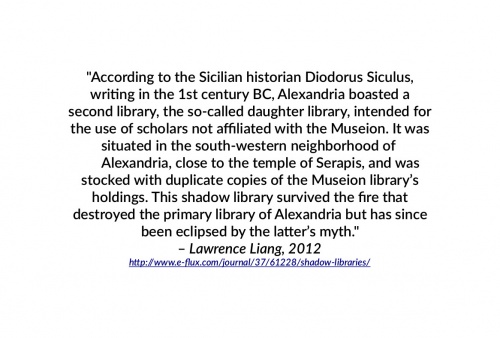](http://www.e-flux.com/journal/37/61228
/shadow-libraries/)
In the essay, he moves between identifying Library.nu as digital Alexandria
and as its shadow.
In this account, even large libraries exist in the shadows cast by their
monumental precedessors.
There’s a lineage, there’s a tradition.
Almost everyone and every institution has a library, small or large.
They’re not necessarily Alexandrias, but they strive to stay relevant.
Take the University of Amsterdam where I now work.
University libraries are large, but they’re hardly _large enough_.
The publishing market is so huge that you simply can’t keep up with all the
niche little disciplines.
So either you have to wait days or weeks for a missing book to be ordered
somewhere.
Or you have some EBSCO ebooks.
And most of the time if you’re searching for a book title in the catalogue,
all you get are its reviews in various journals the library subscribes to.
So my colleagues keep asking me.
Dušan, where do I find this or that book?
You need to scan through dozens of texts, check one page in that book, table
of contents of another book, read what that paper is about.
[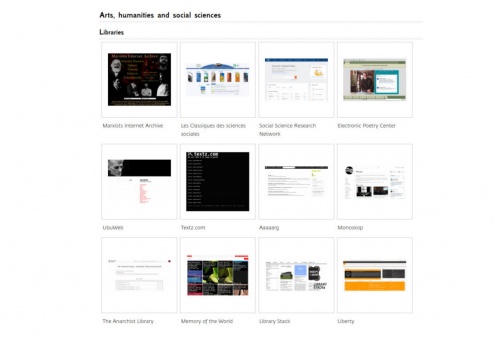](/Digital_libraries#Libraries
"Digital libraries#Libraries")
Or scrapes it from somewhere, since most books today are born digital and live
their digital lives.
...
Digital libraries need to be creative.
They don’t just preserve and circulate books.
[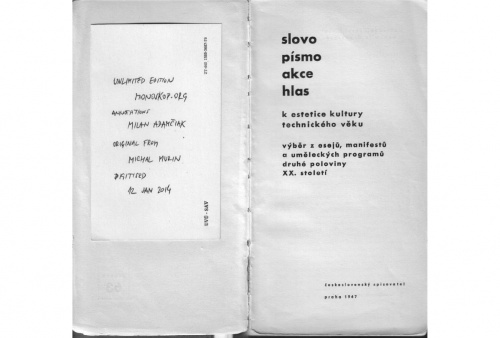](https://monoskop.org/log/?p=10262)
They engage in extending print runs, making new editions, readily
reproducible, unlimited editions.
[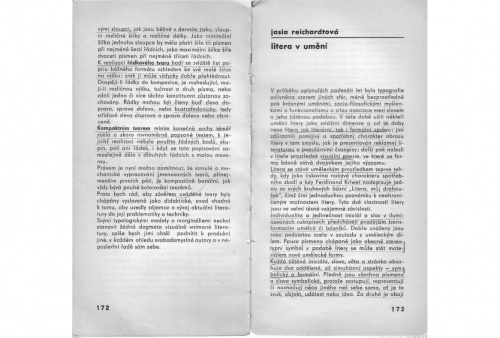](https://monoskop.org/images/d/de/Hirsal_Josef_Groegerova_Bohumila_eds_Slovo_pismo_akce_hlas.pdf#page=87)
This one comes with something extra. Isn’t this beautiful? You can read along
someone else.
In this case we know these annotations come from the Slovak avant-garde visual
poet and composer [Milan Adamciak](/Milan_Adamciak "Milan Adamciak").
[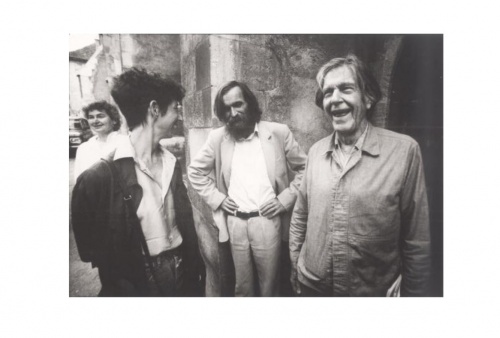](/Milan_Adamciak
"Milan Adamciak")
...standing in the middle.
A couple of pages later...
[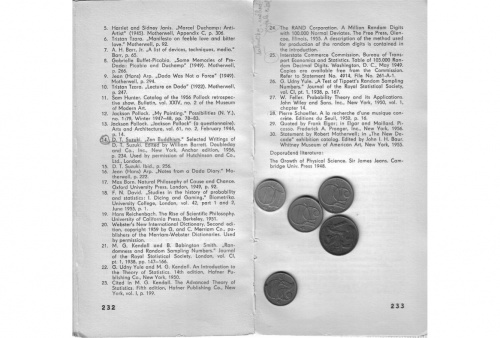](https://monoskop.org/images/d/de/Hirsal_Josef_Groegerova_Bohumila_eds_Slovo_pismo_akce_hlas.pdf#page=117)
...you can clearly see how he found out about a book containing one million
random digits [see note 24 on the image]. The strangest book.
[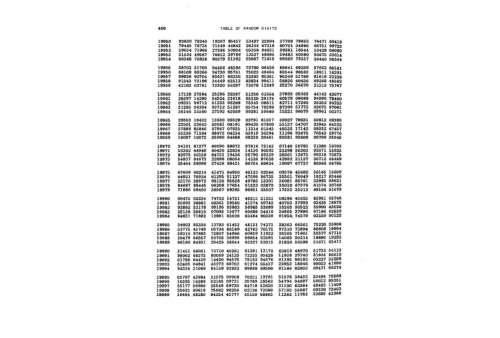](https://monoskop.org/log/?p=5780)
He was still alive when we put it up on Monoskop, and could experience it.
...
Digital libraries may seem like virtual, grey places, nonplaces.
But these little chance encounters happen all the time there.
There are touches. There are traces. There are many hands involved, visible
hands.
They join writers’ hands and help creating new, unlimited editions.
They may be off Google, but for many, especially younger generation these are
the places to go to learn, to share.
Rather than in a shadow, they are out in the open, in plain sight.
[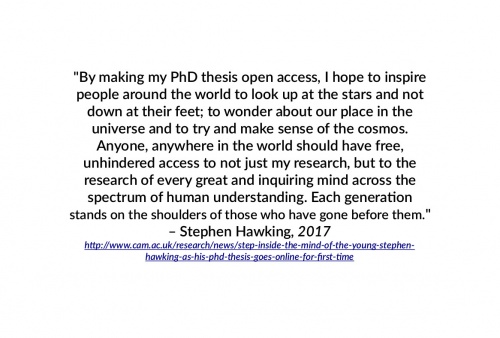](http://www.cam.ac.uk/research/news
/step-inside-the-mind-of-the-young-stephen-hawking-as-his-phd-thesis-goes-
online-for-first-time)
This made rounds last year.
As scholars, as authors, we have reasons to have our works freely accessible
by everyone.
We do it for feedback, for invites to lecture, for citations.
Sounds great.
So when after long two, three, four, five years I have my manuscript ready,
where will I go?
Will I go to an established publisher or an open access press?
Will I send it to MIT Press or Open Humanities Press?
Traditional publishers have better distribution, and they often have a strong
brand.
It’s often about career moves and bios, plans A’s and plan B’s.
There are no easy answers, but one can always be a little inventive.
In the end, one should not feel guilty for publishing with MIT Press.
But at the same time, one should neither feel guilty for scanning and sharing
such a book with others.
...
You know, there’s fighting, there are court cases.
[Aaaaarg](/Aaaaarg "Aaaaarg"), a digital library run by our dear friend [Sean
Dockray](/Sean_Dockray "Sean Dockray"), is facing a Canadian publisher.
Open Library is now facing the Authors Guild for lending scanned books
deaccessioned from libraries.
They need our help, our support.
But collisions of interests can be productive.
This is what our beloved _Cabinet_ magazine did when they found their PDFs
online.
They converted all their articles into HTML and put them online.
The most beautiful takedown request we have ever received.
[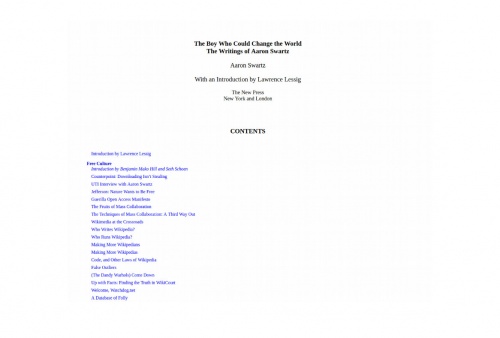](https://monoskop.org/log/?p=16598)
So what is at stake? What are these digital books?
They are poor versions of print books.
They come with no binding, no paper, no weight.
They come as PDFs, EPUBs, JPEGs in online readers, they come as HTML.
By the way, HTML is great, you can search it, copy, save it, it’s lightweight,
it’s supported by all browsers, footnotes too, you can adapt its layout
easily.
That’s completely fine for a researcher.
As a researcher, you just need source code:
you need plain text, page numbers, images, working footnotes, relevant data
and code.
_Data and code_ as well:
this is where online companions to print books come in,
you want to publish your research material,
your interviews, spreadsheets, software you made.
...
Here we distinguish between researchers and readers.
As _readers_ we will always build our beautiful libraries at home, and
elsewhere,
filled with books and... and external harddrives.
...
There may be _no contradiction_ between the existence of a print book in
stores and the existence of its free digital version.
So what we’ve been asking for is access, basic access. The access to culture
and knowledge for research, educational, noncommercial purposes. A low budget,
poor bandwidth access. Access to badly OCR’d ebooks with grainy images. Access
to culture and knowledge _light_.
Thank you.
Dusan Barok
_Written on 16-17 March 2018 in Athens and Amsterdam. Published online on 21
March 2018._
Sollfrank & Mars
Public Library
2013
Marcell Mars
Public Library
Berlin, 1 February 2013
[00:13]
Public Library is the concept, the idea, to encourage people to become a
librarian, where a librarian is a person which can allow access to books – and
also which has a catalogue or index, so that it's searchable. [00:32] And the
person, the human being, can communicate, can talk with others who are
interested in that catalogue of books. [00:43] And then when you have a
librarian, and you have a lot of librarians, you have a Public Library,
because we have access to books, we have a catalogue, and we have a librarian.
That's the basic set up. [00:55] And in order to really work, in practice, we
need to introduce a set of tools which are easy to use, like Calibre, for
example, for book management. [01:07] And then also some part of that set up
should be also developed because at the moment, because of the configuration
of the routers, IP addresses and other things, it's not that easy to share
your local library which you have on your laptop with the world. [01:30] So we
also provide... When I say ‘we,’ it's a small team, at the moment, of
developers who try to address that problem. [01:38] We don't need to reinvent
the public library. It's invented, and it should be just maintained. [01:47]
The old-school public libraries – they are in decline because of many reasons.
And when it comes to the digital networks, the digital books, it's almost like
the worst position. [01:59] For example, public libraries in the US, they are
not allowed to buy digital books, for example from Penguin. So even when they
want to buy, it's not that they are getting them, it's that they can't buy the
books. [02:16] By the current legal regulation, it's considered as illegal – a
million of books, or even more, are unavailable, and I think that these books
should be really available. [02:29] And it doesn't really matter how it got on
Internet – did it come from a graphic designer who is preparing that for
print, or if it was uploaded somewhere from the author of the book (that is
also very common, especially in humanities), or if it was digitised anywhere.
[02:50] So these are the books which we have, and we can't be blinded, they
are here. The practice at the moment is almost like trying to find a
prostitute or something, so when you want to get a book online you need to get
onto the websites with advertisements for casinos, for porn and things like
that. [03:14] I don't think that the library should be like that.
[03:18]
Book Management
[03:22]
What we are trying to provide is just suggesting what kind of book management
software they can use, and also what kind of new software tools they can
install in order to easily get the messy directory into the directory of
metadata which Calibre can recognise – and then you can just use Calibre. The
next step is if you can share your local library with the world. [03:52] You
need something like a management software where it's easy to see who are the
authors, what the titles, publishers and all of the metadata – and it's
accessible from the outside.
[04:08]
Calibre
[04:12]
Calibre is a book management software. It's developed by Kovid Goyal, a
software developer. [04:22] It's a free software, open source, and it started
like many other free software projects. It started as a small tool to solve
very particular small problems. [04:31] But then, because it was useful, it
got more and more users, and then Kovid started to develop it more into a
proper, big book management software. At the moment it has more that 10
million registered users who are running that. [04:52] It does so many things
for book management. It's really ‘the’ software tool... If you have an
e-reader, for example, it recognises your e-reader, it registers it inside of
Calibre and then you can easily just transfer the books. [05:08] Also for
years there was a big problem of file formats. So for example, Amazon, in
order to keep their monopoly in that area, they wouldn't support EPUB or PDF.
And then if you got your book somewhere – if you bought it or just downloaded
from the Internet, you wouldn't be able to read it on your reader. [05:31]
Then Calibre was just developing the converter tools. And it was all in one
package, so that Calibre just became the tool for book management. [05:43] It
has a web server as a part of it. So in a local area network – if you just
start that web server and you are running a local area network, it can have a
read-only searchable access to your local library, to your books, and it can
search by any of these metadata.
[06:05]
Tools Around Calibre
[06:09]
I developed a software which I call Let's Share Books, which is super small
compared to Calibre. It just allows you, with one click, to get your library
shared on the Internet. [06:24] So that means that you get a public URL, which
says something like www some-number dot memoryoftheworld dot net, and that is
the temporary public URL. You can send it to anyone in the world. [06:37] And
while you are running your local web server and share books, it would just
serve these books to the Internet. [06:45] I also set up a web chat – kind of
a room where people can talk to each other, chat to each other. [06:54] So
it’s just, trying to develop tools around Calibre, which is mostly for one
person, for one librarian – to try to make some kind of ecosystem for a lot of
librarians where they can meet with their readers or among themselves, and
talk about the books which they love to read and share. [07:23] It’s mostly
like a social networking around the books, where we use the idea and tradition
of the public library. [07:37] In order to get there I needed to set up a
server which only does routing. So with my software I don’t know which books
are transferred, anything. It’s just like a router. [07:56] You can do that
also if you have control of your router, or what we usually call modem, so the
device which you use to get to the Internet. But that is quite hard to hack,
just hackers know how to do that. [08:13] So I just made a server on the
Internet which you can use with one click, and it just routes the traffic
between you, if you’re a librarian, and your users, readers. So that’s that
easy.
[08:33]
Librarians
[08:38] It’s super easy to become a librarian, and that is what we should
celebrate. It’s not that the only librarians which we have were the librarians
who were the only ones wanting to become a librarian. [08:54] So lots of
people want to be a librarian, and lots of people are librarians whenever they
have a chance. [09:00] So you would probably recommend me some books which you
like. I’ll recommend you some books which I like. So I think we should
celebrate that now it’s super easy that anyone can be a librarian. [09:11] And
of course, we will still need professional librarians in order to push forward
the whole field. But that goes, again, in collaboration with software
engineers, information architectes, whatever… [09:26] It’s so easy to have
that, and the benefits of that are so great, that there is no reason why not
to do that, I would say.
[09:38]
Functioning
[09:43]
If you want to share your collection then you need to install at the moment
Calibre, and Let’s Share Books software, which I wrote. But also you can – for
example, there is a Calibre plugin for Aaaaarg, so if you use Calibre… from
Calibre you can search Aaaaarg, you can download books from Aaaaarg, you can
also change the metadata and upload the metadata up to Aaaaarg.
[10:13]
Repositories
[10:17]
At the moment the biggest repository for the books, in order to download and
make your catalogue, is Library Genesis. It’s around 900,000 books. It’s
libgen.info, libgen.org. And it’s a great project. [10:33] It’s done by some
Russian hackers, who also allow anyone to download all of that. It’s 9
Terabytes of books, quite some chunk of hard disks which you need for that.
[10:47] And you can also download PHP, the back end of the website and the
MySQL database (a thumb of the MySQL database), so you can run your own
Library Genesis. That’s one of the ways how you can do that. [11:00] You can
also go and join Aaaaarg.org, where it is also not just about downloading
books and uploading books, it’s also about communication and interpretation of
making, different issues and catalogues. [11:14] It’s a community of book
lovers who like to share knowledge, and who add quite a lot of value around
the books by doing that. [11:26] And then there is… you can use Calibre and
Let’s Share Books. It’s just one of these complimentary tools. So it’s not
really that Calibre and Let’s Share Books is the only way how you can today
share books.
[11:45]
Goal
[11:50]
What we do also has a non-hidden agenda for fighting for the public library. I
would say that most of the people we know, even the authors, they all
participate in the huge, massive Public Library – which we don’t call Public
Library, but usually just trying to hide that we are using that because we are
afraid of the restrictive regime. [12:20] So I don’t see a reason why we
should shut down such a great idea and great implementation – a great resource
which we have all around the world. [12:30] So it’s just an attempt to map all
of these projects and to try to improve them. Because, in order to get it into
the right shape, we need to improve the metadata. [12:47] Open Library, a
project which started also with Aaron Swartz, has 20 millions items, and we
use it. There is a basedata.org which connects the hash files, the MD5 hashes,
with the Open Library ID. And we try to contribute to Open Library as much as
possible. [13:10] So with very few people, around 5 people, we can improve it
so much that it will be for a billion of users a great Public Library, and at
the same time we can have millions of librarians, which we never had before.
So that’s the idea. [13:35] The goal is just to keep the Public Library. If we
didn’t screw up the whole situation with the Public Library, probably we’d
just try to add a little bit of new software, and new ways that we can read
the books. [13:53] But at the moment [it’s] super important actually to keep
this infrastructure running, because this super important infrastructure for
the access to knowledge is now under huge threat.
[14:09]
Copyright
[14:13]
I just think that it’s completely inappropriate – that copyright law is
completely inappropriate for the Public Library. I don’t know about other
cases, but in terms of Public Library it’s absolutely inappropriate. [14:29]
We should find the new ways of how to reward the ones who are adding value to
sharing knowledge. First authors, then anyone who is involved in public
libraries, like librarians, software engineers – so everyone who is involved
in that ecosystem should be rewarded, because it’s a great thing, it’s a
benefit for the society. [15:03] If this kind of things happens, so if the law
which regulates this blocks and doesn’t let that field blossom, it’s something
wrong with that law. [15:16] It’s getting worse and worse, so I don’t know for
how long we should wait, because while we’re waiting it’s getting worse.
[15:24] I don’t care. And I think that I can say that because I’m an artist.
Because all of these laws are made saying that they are representing art, they
are representing the interest of artists. I’m an artist. They don’t really
represent my interests. [15:46] I think that it should be taken over by the
artists. And if there are some artists who disagree – great, let’s have a
discussion.
[15:58]
Civil Disobedience
[16:03]
In the possibilities of civil disobedience – which are done also by
institutions, not just by individuals – and I think that in such clear cases
like the Public Library it’s easy. [16:17] So I think that what I did in this
particular case is nothing really super smart – it’s just reducing this huge
issue to something which is comprehensible, which is understandable for most
of the people. [16:31] There is no one really who doesn’t understand what
public library is. And if you say to anyone in the world, saying, like hey, no
more public libraries, hey, no books anymore, no books for the poor people. We
are just giving up on something which we almost consensually accepted through
the whole world. [16:55] And I think that in such clear cases, I’m really
interested [in] what institutions could do, like Transmediale. I’m now in
[Akademie] Schloss Solitude, I also proposed to make a server with a Public
Library. If you invest enough it’s a million of books, it’s a great library.
[17:16] And of course they are scared. And I think that the system will never
really move if people are not brave. [17:26] I’m not really trying to
encourage people to do something where no one could really understand, you
know, and you need expertise or whatever. [17:37] In my opinion this is the
big case. And if Transmediale or any other art institution is playing with
that, and showing that – let’s see how far away we can support this kind of
things. [17:56] The other issue which I am really interested in is what is the
infrastructure, who is running the infrastructures, and what kind of
infrastructures are happen in between these supposedly avant-garde
institutions, or something. [08:12] So I’m really interested in raising these
issues.
[18:17]
Art Project
[18:21]
Public Library is also an art project where… I would say that just in the same
way that corporations, by their legal status, can really kind of mess around
with different… they can’t be that much accountable and responsible – I think
that this is the counterpart. [18:44] So civil disobedience can use art just
the same way that corporations can use their legal status. [18:51] When I was
invited as a curator and artist to curate the HAIP Festival in Ljubljana, I
was already quite into the topic of sharing access to knowledge. And then I
came up with this idea and everybody liked it and everybody was enthusiastic.
It's one of these ideas where you can see that it’s great, there is no one
really who would oppose to that. [19:28] At the same time there was an
exhibition, Dear Art, curated by WHW, quite established curators. And then it
immediately became an art piece for that exhibition. Then I was invited here
to Transmediale, and have a couple of other invitations. [19:45] I think that
it also shows that art institutions are accepting that, they play with that
idea. And I think that this kind of projects – by having that acceptance it
becomes the issue, it becomes the problem of the whole arts establishment.
[20:10] So I think that if I do this in this way, and if there is a curator
who invites this kind of projects – so who invites Public Library into their
exhibition – it’s also showing their kind of readiness to fight for that
issue. [20:27] And if there are a number of art festivals, a number of art
exhibitions, who are supporting this kind of, lets say, civil disobedience,
that also shows something. [20:38] And I think that that kind of context
should be pushed into the confrontation, so it’s not anymore just playing “oh,
is it is ok, it is not? We should deal with all the complexity…” [20:57] There
is no real complexity here. That complexity is somewhere else, and in some
other step we should take care of that. But this is an art piece, it’s a well
established art piece. [21:11] If you make a Public Library, I'm fine, I’m
sacrificing for taking the responsibility. But you shouldn't melt down that
art piece, I think. [21:26] And I feel super stupid that such a simple concept
should be, in 2013, articulated to whom? In many ways it’s like playing dummy,
I play dummy. It’s like, why should I? [21:50] When we started to play in
Ljubljana like software developers we came up with so many great ideas of how
to use those resources. So it was immediately… just after couple of hours we
had tools – visualisations of that, a reader of Wikipedia which can embed any
page which is referred, as a reference, a quote. [22:17] It was immediately
obvious for anyone there and for anyone from the outside what a huge resource
is having a Public Library like that – and what’s the huge harm that we don’t
have it. [22:32] But still we need to play dummy, I need to play the artist’s
role, you know.